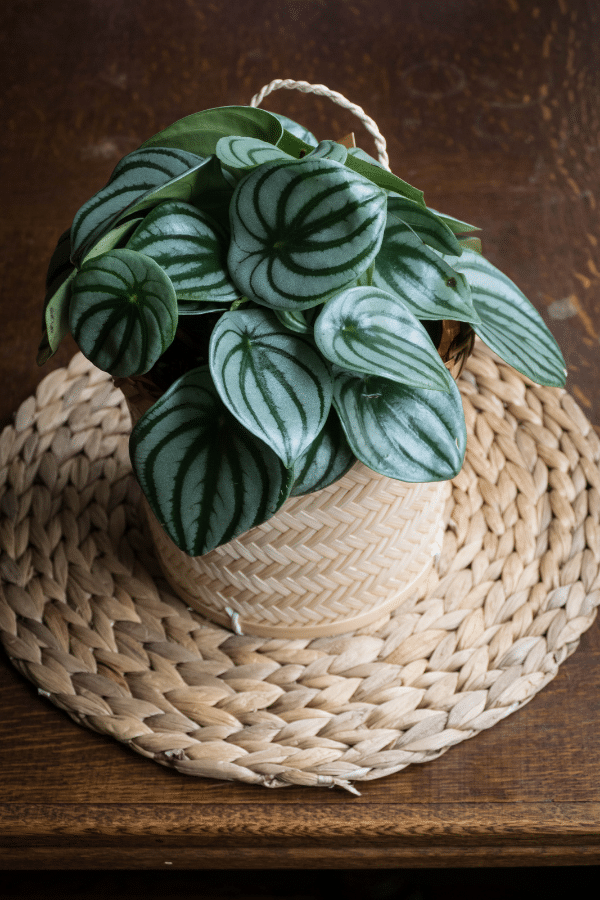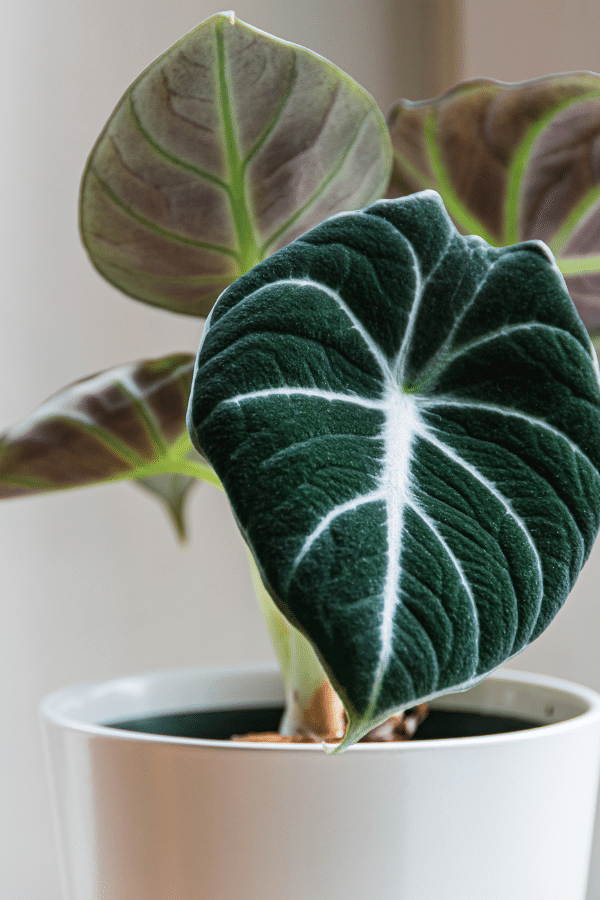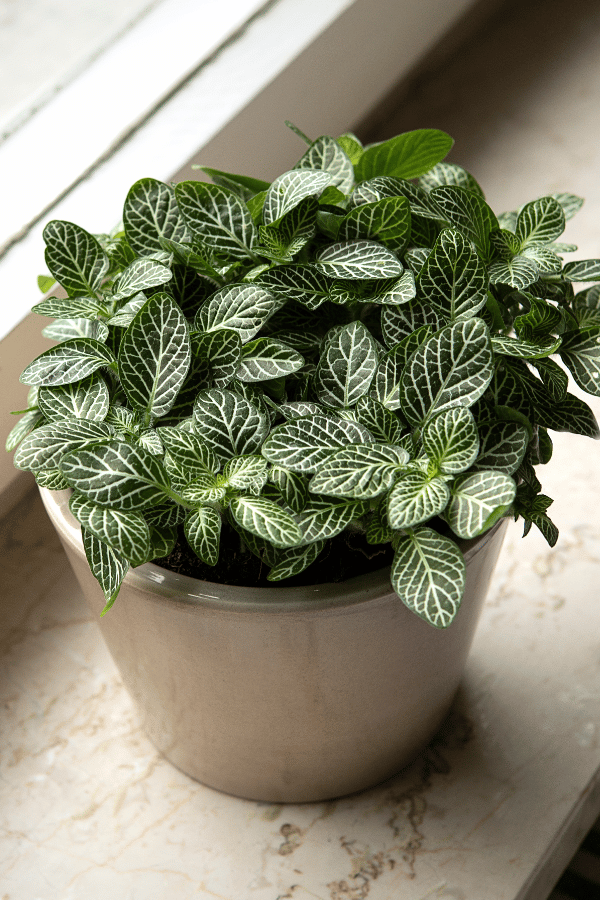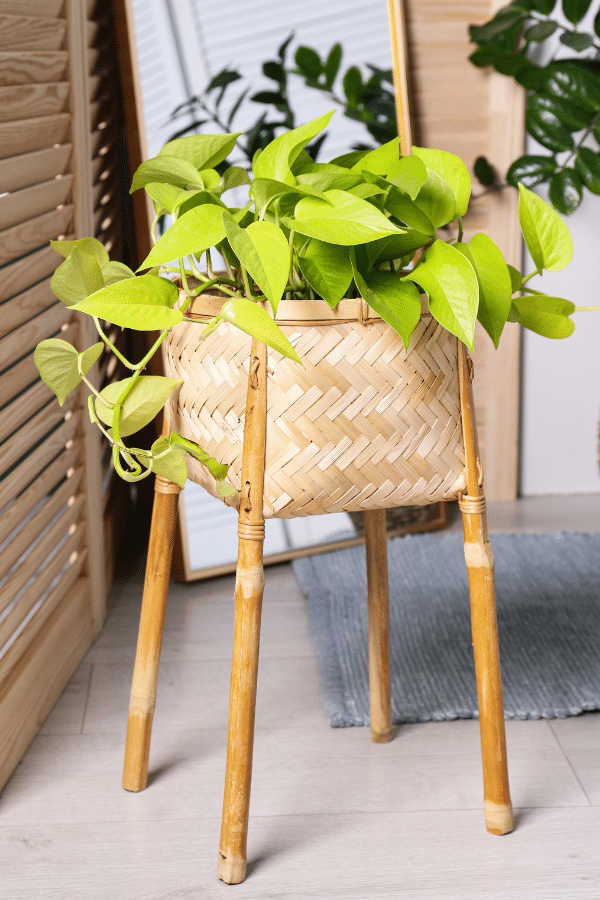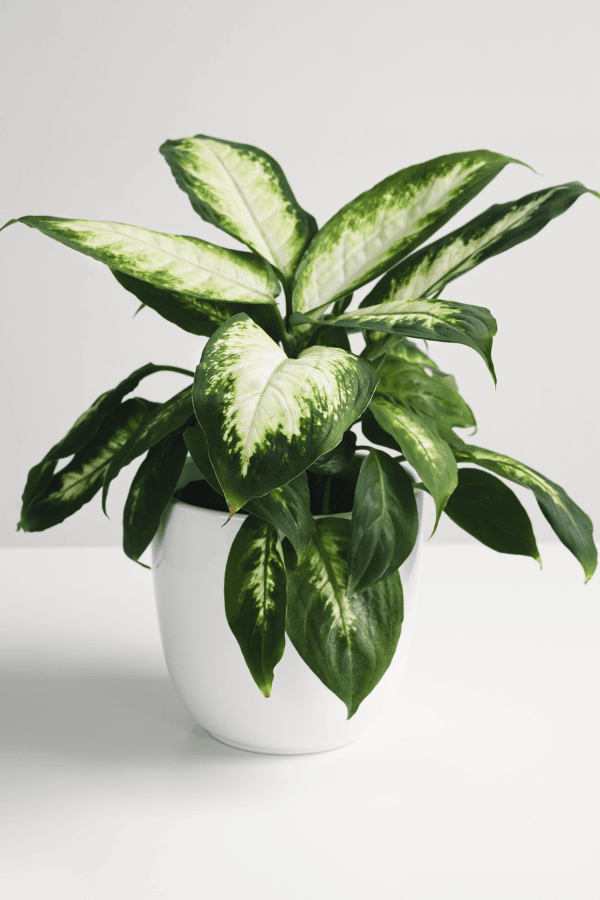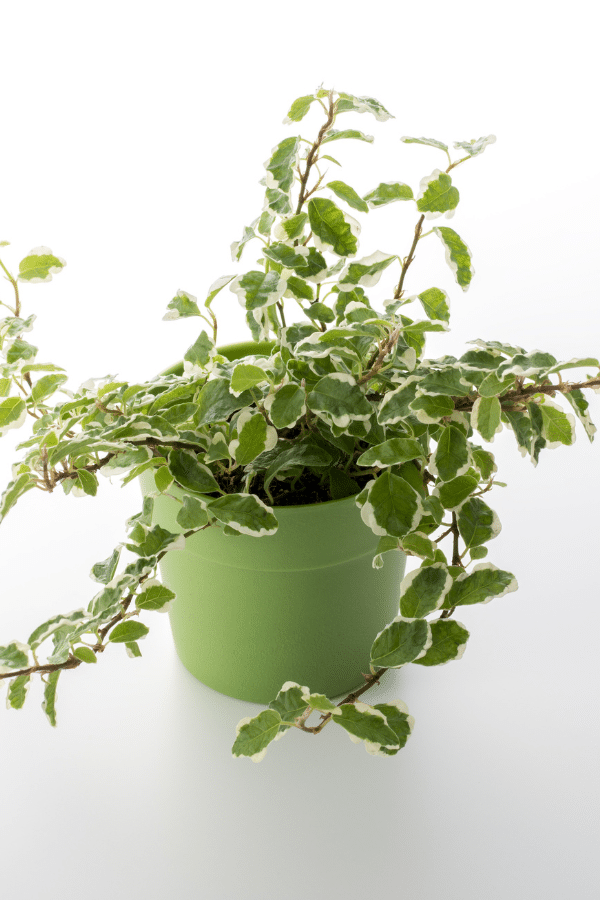Manjula Pothos vs NJoy
Are you looking for a new plant to add to your collection? Manjula Pothos and NJoy are two popular options that you might be considering. You may also be wondering what the differences are between Manjula Pothos and NJoy, as they are both variegated Epipremnum Aureum plants that look similar.
Both Manjula Pothos and NJoy have unique characteristics that make them stand out from other plants, but the two of them are very similar. Manjula Pothos has stunning green and white variegated leaves that curl splashes of silver, while NJoy has long, upright leaves with a distinctive pattern of white and dark green spots. Manjula has more of a sporadic way with its leaf coloring.
Manjula Pothos Overview

My Manjula Pothos is one of my favorite Pothos plants! I love the way their leaves look, they are so distinctive from my other Pothos plants, which include Global Green Pothos, Hawaiian Pothos, & Golden Pothos.
This plant has large, heart-shaped leaves variegated with shades of green, white, and sometimes splashes of silver. The leaves can grow up to 4 inches long and 2 inches wide, and the plant can reach up to 6 feet in length if given enough space to grow.
Manjula Pothos is a low-maintenance but definitely appreciates a bit more care and patience. It does great in bright, indirect light and moderate humidity. It can tolerate a wide range of temperatures but prefers temperatures between 65-85°F. Water the plant when the soil feels dry to the touch, and fertilize it every 2-4 weeks during the growing season.
While you can’t propagate this plant for resale due to it being a patented plant, (unless you havee the rights and pay royalties), you can still propagate it for yourself.
NJoy Pothos Overview

This plant is a variety of the Pothos family, known for its ease of care and ability to thrive in low light conditions.
NJoy Pothos has variegated green and white leaves that are heart-shaped. The leaves are glossy and have a waxy texture. The plant can grow up to 6 feet long, making it a great choice for hanging baskets or trellises.
NJoy Pothos is a low-maintenance plant that requires minimal care. It can tolerate low light conditions but prefers bright, indirect light. Water the plant when the soil is dry. Avoid overwatering, as this can lead to root rot.
NJoy Pothos is also a patented pothos plant, so it cannot be propagated for sale. You can propagate this plant for yourself through stem cuttings, but you cannot sell it for monetary value without having selling rights.
Differences Between Manjula Pothos & NJoy Pothos
When talking about the differences between Manjula Pothos vs NJoy, they are slim as they are very similar and hard to tell apart. The appearance is what really sets these two plants apart.
Manjula Pothos has larger leaves with a variegated, splashy pattern of green and white, while NJoy has smaller leaves that are more uniform with solid green and white spots. Additionally, Manjula Pothos tends to have a more trailing growth pattern, while NJoy grows more upright.
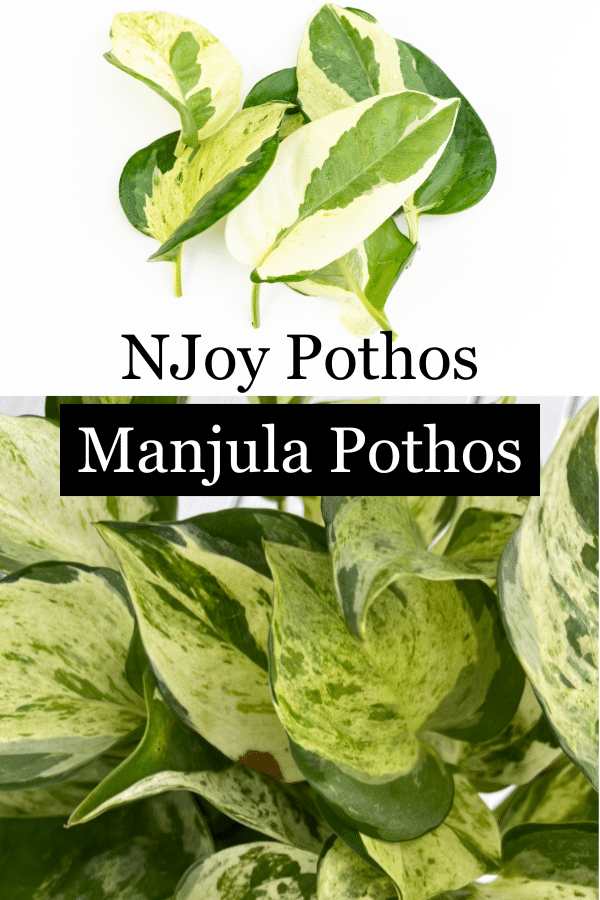
Similarities Between Manjula Pothos & NJoy Pothos
When it comes to similarities between Manjula Pothos and NJoy, there are several.
Variegated Leaves
Manjula & NJoy Pothos have green and white variegated leaves, making them really hard to tell the two apart.
Low Maintenance
Neither Manjula Pothos nor NJoy requires a lot of attention, and they can thrive in a variety of conditions, making them ideal for people who are new to indoor gardening or do not have a lot of time to devote to plant care.
Patented Pothos Variety
Manjula Pothos and NJoy are both patented varieties of Epipremnum Aureum, meaning they cannot be propagated and sold without permission and without paying royalties to the patent holder.
Toxicity
All Pothos plants are toxic and these two are no exception. Avoid letting your cat or dog bite on the leaves to avoid an upset stomach, vomiting, and diarrhea. Keep the plants on a top shelf away from pets.

